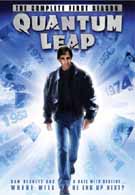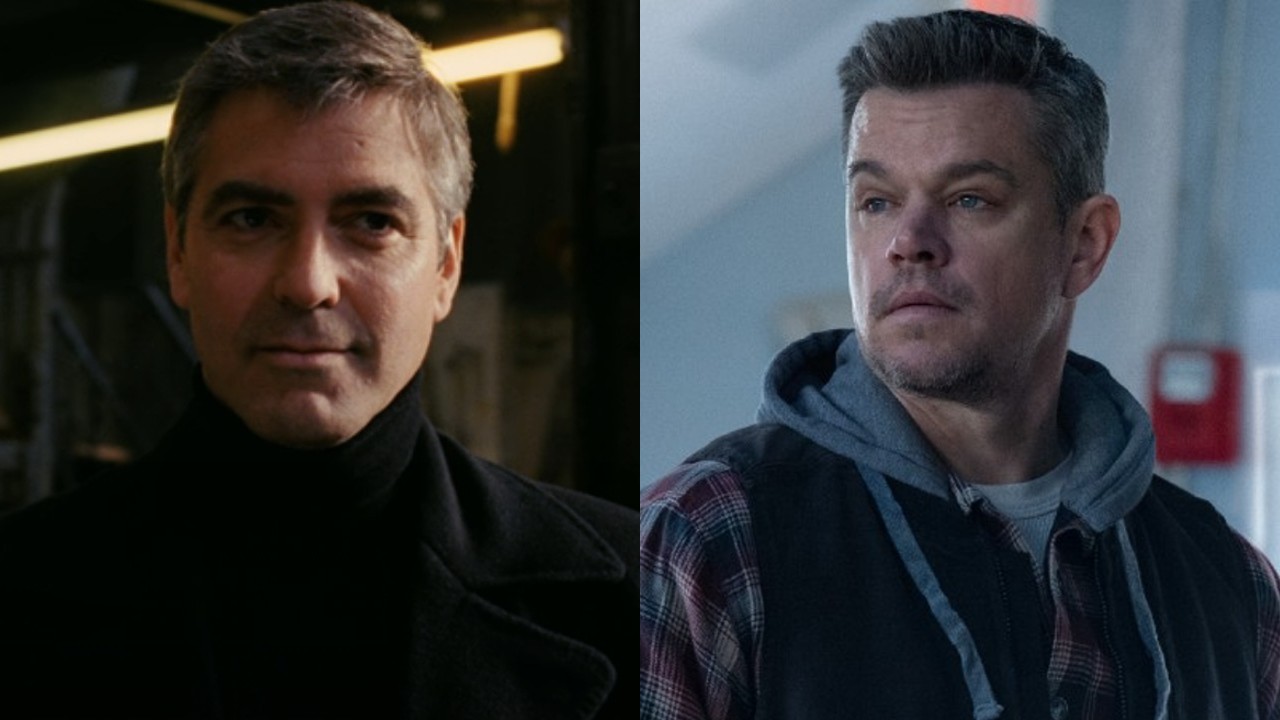Time travel rarely makes sense and if you look for ways to do it, you can unravel even the most tightly woven temporal plotline with merely a tug. Rarely has time hopping been shakier then in “Quantum Leap,” but seldom has the confusion been more forgivable. A crucial television staple of the nineties, “Quantum Leap” actually kicked off in 1989 with a tentatively scheduled first season of eight episodes. Always conservative, the network worried that people wouldn’t understand a show about a guy from the future inexplicably leaping in and out of other people’s bodies in history. They were right. Despite an attempt at explanation in the show’s first episode from time traveler Sam Beckett’s (Scott Bakula) holographic companion involving a piece of string, even today the concept still doesn’t make a whole heck of a lot of sense.
What we do know after season one is that Sam Beckett is a scientist from an unspecified time in the near future (a time when people festoon their clothes with flashy lights). While working on a time travel experiment, things (in Sam’s words), “went a little ca-ca”. Now he’s been flung back in time into the bodies and lives of different people who have lived during his own lifetime. The catch is that even though to himself and to us Sam always looks the same, to the people around him he looks like the same guy they’ve always known. So while this week Sam may have leapt into the body of an elderly southern black man, to us in the audience he’s still white-bread Scott Bakula. A weird but necessary conceit if you’re going to have the same actor in the same role for more than one episode. But where the show gets really weird and unscientific is in the nature of Sam’s leaping. Whether guided by God, fate, or some weird future power, Sam leaps into people’s lives and only leaps out when he set some certain thing right. It’s never clear how this could be, but Sam keeps on trying to fix things in the hope that his next leap, will be the leap home.
Despite an admittedly screwy premise, the show turned out to be genius. Audiences responded. It works only on the fantastic “aw shucks” performance of Bakula, offset by the great chemistry between he and Dean Stockwell as his brightly clothed, womanizing, holographic companion from the future named Al. The storytelling is fantastic, the sets creative, the situations Sam gets thrust into are all first rate. Sure, the science is pretty flimsy, and the premise on closer inspection seems weak. But the folks behind Quantum Leap delivered relevant, exciting, and often controversial stories week after week. Those original eight episodes deservedly spawned a huge fan following, eventually propelling the show to multiple seasons.
In the eight episodes of season one, standout for me was “The Color of Truth” in which Sam leaps into the body of an elderly black man on the cusp of the civil rights movements. This episode is almost a more socially conscious re-enactment of Driving Miss Daisy, without the boredom. Today, no doubt there would be a huge outrage at a white man in a black man’s body starting the civil rights movement, but modern political correctness aside, “Quantum Leap” deserves credit for not shying away from the more shameful portions of American history. Heck, it tackles them straight on, “The Color of Truth” being the first of many Quantum Leap episodes to barrel into tough issues. Also standout for me was “Camikazi Kid”, in which Sam leaps into the body of a teenage hot rodder in the early fifties. It’s one of the show’s sillier episodes, with Sam being pantsed and thrown in a dumpster and succeeding by racing for pinks. But it has its poignant moments as well as Sam tries to save his teenage host’s sister from a tragic and abusive marriage to a high school pretty boy. The final episode of the season finds Sam leaping into the body of a Bogart-like detective, hot on the trail of a murder mystery. Sam saves the day and leaps… into a bathtub surrounded by candles. It’s there that the series ends, hinting at even more (for 1989) salacious content to come.
“Quantum Leap” makes a strong showing in just eight episodes, some entertaining, some important and educational. It loses its stride a bit whenever they try to shoehorn in important historical figures. In one episode Sam bumps into a very young Michael Jackson, a moment that couldn’t possibly have been more out of place and awkward. But when the show sticks to telling personal stories about Sam doing small things to help improve people’s lives, it’s a certified home run. The show only gets better in season two, yet season one is a great beginning for a series destined to become a fondly remembered classic. This DVD isn’t loaded to the hilt, but what it does offer is pretty fan friendly. Just don’t plan on getting much life out of the packaging… it’s sharp looking and flashy, but also pretty flimsy. This seems to be the new thing in television DVD sets, cheap cardboard and low cost packaging covered over with flashy artwork. I’m happy they put so much effort into the package art, I just wish the package was capable of standing up to the rigors of being frequently loaned out.
But once you get the disc in, it’s a lean, mean, smart presentation designed to give you a few tidbits without spending a lot of money on production. The menu is nice and replays the “Quantum Leap” theme song over and over in the background. Fortunantly, the song is a good one so you won’t mind unless you plan on staring at the menu for 5 or 6 minutes.
In addition to the premiere episode and the show’s second episode, Disc One of “Quantum Leap – The Complete First Season” contains the set’s only real feature, a well put together set of interviews about the show called “A Kiss with History: Remembering Quantum Leap”. In it, series creator Donald Bellisario (who looks more like Rob Reiner the older he gets), stars Scott Bakula and Dean Stockwell, as well as a few others were interviewed specially for this DVD release. Its cut together to give you a rough timetable of what it took to get the show together, from casting to day to day production all described in the cast and crew’s own words. “A Kiss with History” is short, but effective for much the same reason the show was… they’ve got a great cast. It’s fun to hear a now very old Dean and still in his prime Scott prattle on about the old days, just the sort of thing any fan would want.
Your Daily Blend of Entertainment News
Additionally, each episode comes with an optional introduction from Scott Bakula. This can be turned off from the Bonus Features menu, but I can’t think of any reason you’d want to. Should you take the wiser course and leave it on, each time you select an episode to play, it’ll be preceded by a little anecdote from Scott about filming that particular hour of television. They’re only two or three minutes, which is just short enough not to get in the way of the episode you’re about to watch, but just long enough for Scott to really do a great job of setting the stage for what you’re about to see, and maybe tell an amusing story about a piglet peeing in his lap.
“Quantum Leap - The Complete First Season” deserves big credit for getting the major players from the cast so enthusiastically involved. Yet you have to wonder whether they wasted the cast’s enthusiasm by not giving them more to do. What’s there is great, but it would have been so easy to get all of them to give even more material for this release. A commentary track would have been fantastic, or maybe some old footage? That’s not much to ask. What is there though is well done and easy to get into. If you’re a fan of the show you’ll be pleased even if you’re only getting eight episodes to watch. If you’re not one, borrow it from someone and enjoy just for a chance to re-watch the show. This is one set that’s already on its way to making the rounds among my friends.

